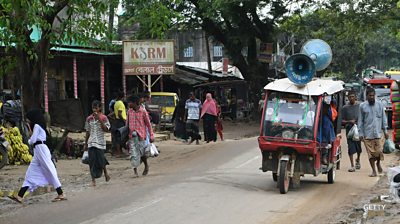Downloads
Publication date: June 2021
Authors: Nicola Bailey, Nushrat Mehjabin and Sifati Tamanna
Overview:
It has long been recognised that humanitarian agencies have a responsibility to ensure those affected by crisis have access to reliable information; to help them participate in decisions which affect them; and to be accountable to the communities they aim to serve. The ‘Common Service for Community Engagement and Accountability’ has been working to achieve this since 2017, the beginning of the Rohingya refugee crisis in Cox’s Bazar, Bangladesh.
The current common service consortium members, ����ý Media Action and Translators Without Borders (TWB) aim to help agencies and sectors working to support Rohingya refugees and local host communities living in Cox’s Bazar to achieve this by providing a range of specialist, technical support services.
As common service resources and attention have been diverted to focus on COVID-19, a key focus of the evaluation this year was to understand how the project has been able to support agencies and communities through the pandemic. A mixed methods study was conducted in January 2020, including a representative survey with Rohingya and host communities, across different camps and upazilas. Qualitative research was also carried out with these community members, and with humanitarian practitioners and volunteers.
This evaluation finds that the common service has been instrumental in informing Rohingya people about COVID-19. Getting information out in the right places, the right language and format also played an important role. The common service must now work with partners to ensure men, and older people are accessing information they need despite COVID-19 restrictions. Read the full findings of this study in the report above.
Find out more on our work supporting humanitarian organisations to improve their engagement with the Rohingya people and host communities living in Cox’s Bazar.
